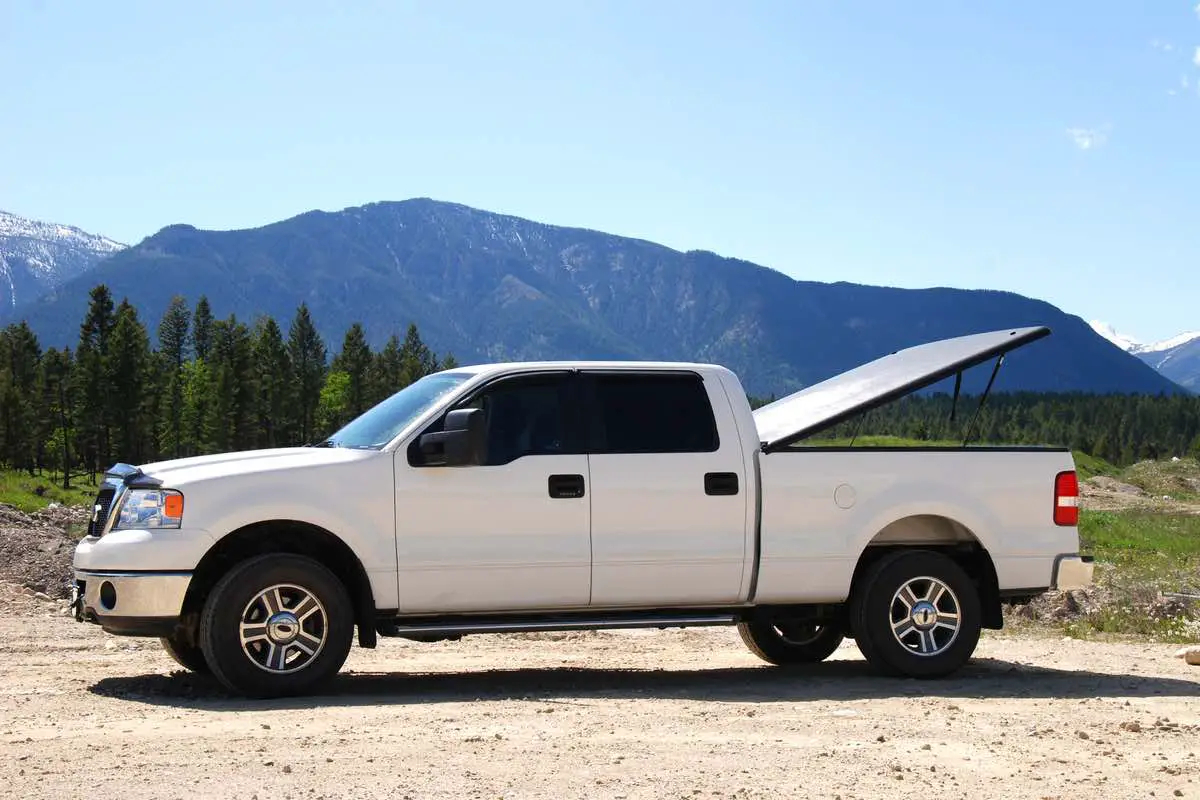The question of whether electric trucks are heavier than diesel trucks comes up fairly often, especially in discussions about whether fully electric vehicles will be suitable for commercial trucking applications. Most of the time, the question is answered with an unqualified yes — and that answer is correct but not complete.
Electric trucks can be heavier than (or the same size as) diesel trucks, but that’s not always the case. There are ways to make electric trucks lighter than their diesel counterparts, making them better suited to long-haul driving or other applications where heavy weight would be an issue.
We will define what it means for a vehicle to be heavy in this article. Heavy doesn’t just mean that a vehicle weighs a lot; it also means challenging to move, so even if two vehicles have similar weights, one might still feel heavier because it takes more effort to get it moving.

Is It Safe To Assume Electric Trucks Are Heavier Than Diesel Trucks?
Most people would say yes, electric trucks are heavier than diesel trucks. After all, electric trucks have batteries and motors that add weight. But is this always the case?
It turns out that the answer is a bit more complicated than a simple yes or no.
Electric trucks are powered by batteries, which makes them heavier than diesel trucks. But, electric trucks can also have smaller batteries than diesel trucks, carrying less weight.
For example, if an electric truck carries 40 tons (36,287.4 kg) of cargo but only needs to travel 100 miles (161 km) per day, it may only need to haul around 5 tons (4,535.9 kg) of battery power.
This is why electric trucks are becoming more popular despite their heavy weight as the technology improves and the batteries’ prices decrease.
What’s the Primary Difference Between Diesel Trucks and Electric Trucks?
While both types of trucks are built for hauling, there are some key differences between diesel and electric trucks.
- Electric trucks are powered by electricity, while diesel trucks run on diesel fuel.
- Electric trucks tend to be quieter than their diesel counterparts.
- While a diesel truck will burn through a tank of fuel every 2-3 days, depending on how much you drive it, an electric truck can go up to 500 miles (800 km) before needing its next charge.
- Electric trucks also tend to have more torque, which can be helpful when hauling heavy loads.
How Much More Do They Weigh Than Their Diesel Counterparts?
Electric trucks are becoming increasingly popular as the technology improves and the infrastructure to support them expands. But one question that potential buyers often have is, how much do they weigh? Are electric trucks heavier than diesel trucks?
The answer depends on the truck’s specific model and its purpose. For example, a medium-duty electric truck might be about 300 pounds (136 kg) lighter than a comparable diesel vehicle due to the lack of an engine or transmission.
The weight difference becomes more significant in heavy-duty electric trucks. An estimated Class 7 or 8 heavy-duty truck with electric powertrains can be as much as 10% lighter than its diesel equivalent.
Although electric trucks are generally about 10-15% heavier than their diesel counterparts, this extra weight comes from the battery packs that power the electric motors.
How Batteries Affect Vehicle Weight
The weight of a battery is a significant factor in an electric truck’s overall heft. The more energy that needs to be stored, the heavier the vehicle will be. Lithium-ion batteries typically weigh about four times as much as a typical diesel engine.
However, this weight difference does not necessarily mean that electric trucks are less efficient. In fact, electric trucks can actually be more efficient than diesel trucks because they do not require as much energy to move.
How Much Power Do They Produce Versus Their Diesel Counterparts?
The average weight of an electric truck is about 10,000 pounds (4,535.9 kg), while the average weight of a diesel truck is about 12,000 pounds (5443.1 kg).
However, the average power output of an electric truck is about 800 horsepower, while the average power output of a diesel truck is only about 400 horsepower.
This means that electric trucks can produce more power per pound than diesel trucks. But, it’s also important to note that diesel trucks have a slightly higher torque output than electric trucks. This allows them to accelerate faster and climb hills more easily.
Does Battery Life Make the Electric Truck More Cost-Effective Than Diesel Trucks?
There’s no doubt that electric trucks are more efficient than diesel trucks. But does that make them more cost-effective in the long run? Let’s take a look at the numbers.
The average semi truck driver drives about 100,000 miles per year, which translates to about 2,000 hours on the road. Considering diesel fuel costs about $5 per gallon and an electric truck battery can last between 500 and 800 miles before needing to be recharged, we can compare their efficiency by calculating how many gallons of fuel it takes for a diesel truck or an electric truck to drive 2,000 hours on the road.
Despite the initial cost of an electric truck being higher than a diesel truck, the electric truck is more cost-effective in the long run.
The battery life of an electric truck can last up to 500,000 miles (804,672 km) before it needs to be replaced, while the average diesel truck only lasts for 200,000 miles (321,869 km).
In addition, electric trucks are cheaper to operate and maintain than diesel trucks.
The initial investment for buying an electric truck may seem prohibitive at first glance, but once you account for maintenance and fuel savings, it becomes clear that investing in one pays off over time.

Conclusion
Electric trucks are not inherently heavier than diesel ones. However, the battery packs that power electric vehicals are often much heavier than the diesel engines found in traditional trucks. This can make electric trucks more challenging to maneuver and put extra strain on the truck’s suspension and brakes.
In some cases, electric trucks may be lighter than their fueled counterparts, depending on the size and type of battery pack used. However, even when electric trucks are heavier than their diesel counterparts, there are still advantages to using electric trucks, despite appearing to be a drawback.
